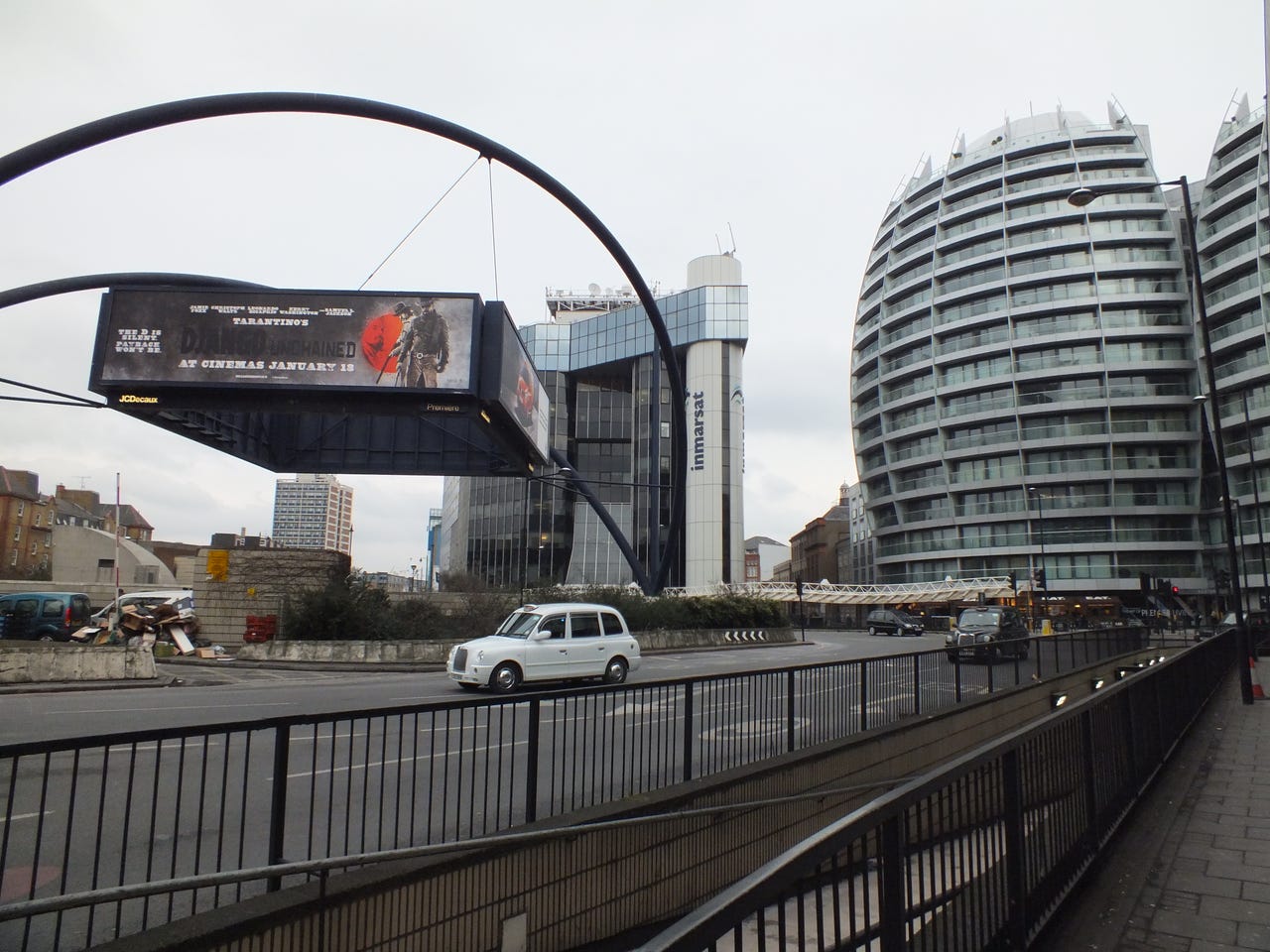The Magic Roundabout: Can Tech City build a start-up paradise?

At the Techspace co-working office in the heart of London's Shoreditch district, the Tech City Investment Organisation (TCIO) is contemplating the best way to spend the £50m that the UK government has pledged to regenerate the chaotic Old Street Roundabout over the next four years.
The TCIO team of 12 will be responsible for orchestrating the project alongside the Greater London Authority and Transport for London, after the pair pledged £25m between them to match the investment made by the UK Treasury.

The area will look completely different when it is finished in 2017, according to the deputy CEO of the TCIO, Benjamin Southworth. There is a lot of scope to develop both the interior and exterior of the roundabout, in addition to the surrounding area, he told ZDNet.
While the team are busy drawing up plans on how to spend the money, it is clear that a chunk of the £50m will be spent on creating Europe's largest civic space somewhere on the roundabout's perimeter.
"It will be a place for start-up companies and the local community to come together and become the next generation of entrepreneurs," said prime minister David Cameron in reference to the civic space when he announced the Tech City funding last December.
The civic space will include a 400-seater auditorium that will host everything from TED-style talks to Pascal programming lessons. There will also be communal labs, workspaces and high-speed broadband.
Once up and running, it is hoped that the centre will be able to support around 200 start-ups per year, help 1,000 young people find skilled employment, and host two major international conferences for the creative and tech industries every year.
Why Old Street?
While Old Street Roundabout may feel like nothing more than a congested, dirty traffic thoroughfare, there is actually something of merit going on here. Amid the chaos is a close-knit network of well-organised tech start-ups, hoping to find success on the Shoreditch diet of coffee and craft beer.
"Everyone is collaborating or communicating with each other," said Southworth.
But where is Tech City? It expands well beyond the Old Street Roundabout and encompasses at least 1,320 companies, according to the Tech City Map. "We take it from King's Cross in the west to Stratford in the east and then all the way down to Greenwich in the south. We've never really picked a northern border. It's roughly nine square miles," explained Southworth.
The start-ups in the area are served by several co-working spaces that offer low rents, flexible working space, and that all-important collaborative environment.
Indeed, Google has its very own co-working space in the form of the Google Campus, but there are others scattered around the area, such as Tech Hub and The Trampery. However, demand for co-working space is high in Tech City and many of the facilities are already at capacity.
Southworth revealed that there will be an additional seven or eight co-working spaces opening over the next two years to cater for those start-ups that have struggled to move into a co-working space.
Tech City inspiration
The obvious tech haven to draw comparison to is California's Silicon Valley — but at 140 square miles and 50 years old it is unfair to compare Silicon Valley to Tech City, according to Southworth. "The Valley is a very unique place and state of mind that I'm not sure we can replicate and something I'm not sure I want to anyway," he said.
"However, if we could include the same square footage and acreage [as Silicon Valley], then we would be able to loop in Reading, Cambridge and Oxford, where we can very quickly point to huge successes, such as $20bn ARM and Eben Upton's Raspberry Pi."
While London may not be Silicon Valley, it was the only European city to feature on a list of the top 10 start-up cities, based on research by Startup Genome and Telefonica (PDF). Other countries across the world with a vibrant start-up scene include Israel, Poland, Sweden, Estonia, and Germany.
Measure of success
But how can the TCIO turn this thriving pocket of London into an even bigger beast and how does one go about measuring progress?
"The metric of success will be around company creation and job creation," said Southworth, pointing out that 35 percent of 18-35 year olds in neighbouring Hackney are unemployed. "If we could save £25m on job seekers' allowance in the local area, then that would be a great return. If we could increase social mobility, that would be a great thing."